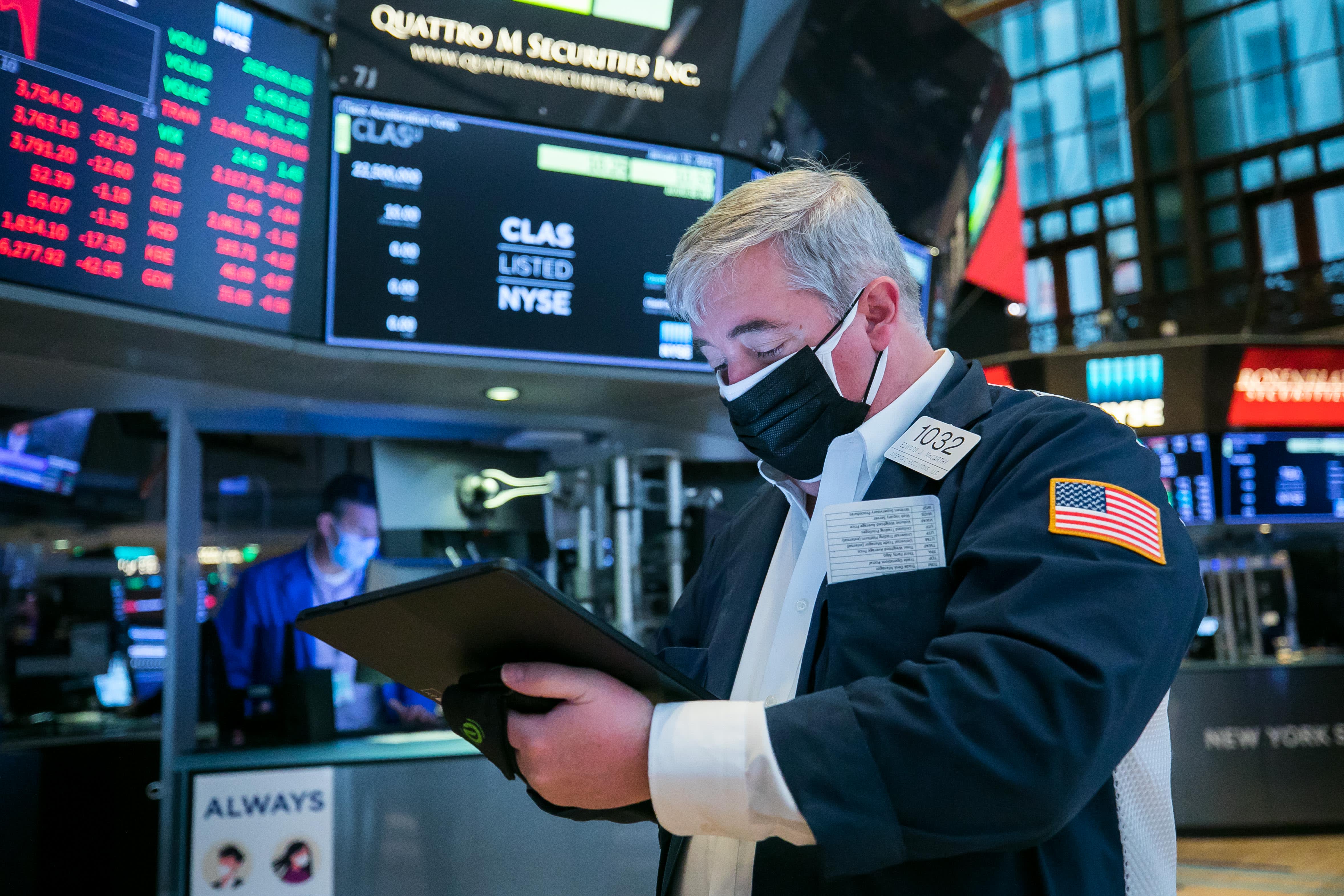
Tech stocks lifted the broader market in another volatile session Friday, rebounding from steep losses after a key inflation gauge showed tame price pressures.
The Nasdaq Composite jumped 1.4% as investors piled into Big Tech names that sold off sharply in the previous session amid surging bond yields. Facebook jumped 3.8%, while Microsoft and Apple each rose more than 2%. The tech-heavy benchmark swung wildly in Friday’s session and fell as much as 0.7% at one point. The S&P 500 gained 0.3%, while the Dow Jones Industrial Average fell 240 points, led by Salesforce and IBM.
Some investors took comfort in the fresh reading of the personal consumption expenditures price index that indicated subdued inflation in January. The PCE index, which the Federal Reserve watches closely, rose 0.3% for the month, slightly ahead of the 0.2% expectation but was up just 1.5% year over year, matching Dow Jones estimates.
The 10-year Treasury yield fell about 6 basis points to 1.46% Friday, after surging above 1.6% at one point on Thursday. Treasury yields initially fell following the inflation data release, but they bounced higher, triggering the intraday slump in major indexes. The 10-year rate is up more than 50 basis points since the year began, a sharp rise for a bond rate used as a benchmark for mortgage rates and auto loans.
“Despite the unruly nature of the treasury sell-off yesterday, credit spreads remained contained, but if spreads widen materially and a sell off ensues, the Fed — and markets — will really have something to worry about,” said Quincy Krosby, Prudential Financial’s chief market strategist.
Popping interest rates alarmed equity investors and pushed the Nasdaq Composite to its worst session since October a day earlier. The Dow dropped 559 points, pulling back from a record high. The S&P 500 lost 2.5% while the tech-heavy Nasdaq shed 3.5%.
Economists and investment managers say the bond market is reacting to positive economics as vaccines are rolled out and GDP forecasts improve, which should benefit corporate profits. But the move could also signal faster-than-expected inflation ahead.
“If the market begins to believe that the Fed has somehow lost control of where the bond market is going, all that idea of a taper tantrum will show up,” Art Cashin, director of floor operations at UBS, said Friday on CNBC’s “Squawk on the Street.”
The sheer pace of the rise has also had the effect of dampening investors’ appetite for richly valued areas of the market. Higher rates reduce the value of future cash flows so they can have the effect have compressing equity valuations. Thursday’s jump in the 10-year yield also put it above the S&P 500′s dividend yield, meaning that equities — which are considered riskier assets — have lost that fixed-payment premium over bonds.
The S&P 500 is down 1.5% so far this week, on pace for its second negative week in a row. The blue-chip Dow has fallen 0.9% so far. The Nasdaq is the relative underperformer this week, losing 4%.
For February, the S&P 500 and the Dow have risen 4% and 3.5%, respectively, on track to post their third positive month in four. The tech-heavy benchmark is up 1.9% this month.
Investors are shifting money into so-called reopening trades, buying the stock of companies that would benefit most from the vaccine rollout and a return to regular travel and dining trends.
Energy has gained 5% this week alone, bringing its February gains to 22.2%. Energy is the biggest winner by far amid expectations that consumers around the world will soon be driving and flying as they were prior to the Covid-19 pandemic. Financials also jumped 12.4% this month, benefitting from rising interest rates.
— CNBC’s Kevin Stankiewicz contributed reporting.
Subscribe to CNBC PRO for exclusive insights and analysis, and live business day programming from around the world.




